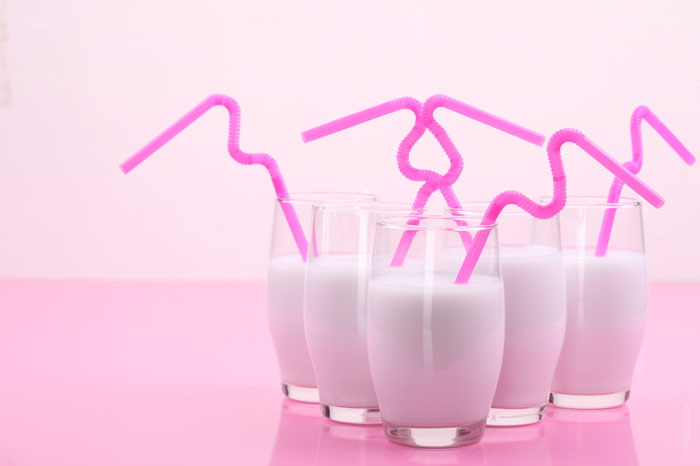 Protein shake intake sounds like a good idea, but a recent study reveals that such shakes are not so innocuous: they can be linked to weight gain, induce moodiness and decrease life expectancy.
Protein shake intake sounds like a good idea, but a recent study reveals that such shakes are not so innocuous: they can be linked to weight gain, induce moodiness and decrease life expectancy.
As you stir protein powder into your smoothie or milk, you certainly do it as a measure to strengthen your health. We all know that protein builds up muscles and bones, assists the body in performing its manifold functions. Aged people whose appetite is dwindling may not get a sufficient amount of protein. While all this is true, be warned that a dose of vanilla flavored or chocolate protein powder could put your health to risk.
Let’s take a closer look at the powder
The protein in powders is of vegetable origin, coming as it does from potatoes, peas, rice, soybeans, hemp, etc. Also, there is whey protein, known as casein, derived from milk or eggs. Besides, often mixed to the powders are different flavorings and sugars, vitamin and mineral additives, thickening substances. The powders differ on the protein content, ranging from 10 to 30 grams in a scoop – if it is muscle building powder, the content is higher, and in weight reduction ones there is less protein.
In what way can they be harmful?
Research conducted at the University of Sydney, upon examining muscle-building protein shakes, arrived at the conclusion that the amino acids in the powder have an adverse influence on the health in general. While the US industries related to health and wellness are very much on the rise, scientists cannot move just as fast, taking time over their research, so it occurs that the benefits hailed in recent diets and foods can be disproved later.
Protein had held its ground longer than most, but it appears that consumption of one and the same sort of protein can be detrimental to health. The research says that protein of the sort used in shakes and other kinds of supplements can inhibit the generation of tryptophan by the body, resulting in putting on weight, quick-changing moods and taking months off your life.
The production of protein supplements is currently bringing about $14 billion globally, while gyms, fitness and yoga studios, and juice bars multiply on city streets.
Carbohydrates are active agents conducive to many body changes and eventually harmful for health. Resulting consequences may affect fat storages and the body’s reaction to insulin.
Meanwhile, protein is an essential agent for strengthening bones, growing muscles, and overall body development.
Both of these are among major nutrients, and we cannot very well categorize them as beneficial or harmful without warping the truth. Yet when it’s a case of excessive consumption, it cannot make a balanced diet. Protein supplements shake, and powders taken in unholy amount can wreak a lot of havoc in the body.
Being addicted to powders or powder-based drinks mean you go heavy on the sort of proteins known as branched-chain amino acids or BCAAs. But they don’t make their way to muscles immediately; if you take a lot of these, they will keep traveling all over your body with the blood. On their way, they begin to race against the sort of amino acid called tryptophan, reaching for the brain. Getting to the destination, they work differently. Tryptophan participates in serotonin production, but if there are BCAAs in great amounts they replace tryptophan, thereby interfering with the release of serotonin. It can account for unexpected mood changes.
Lack of the hormone serotonin results in downfall in happiness; it also helps weaken the appetite so its shortage can prevent you from stopping eating in good time.
Serotonin, often dubbed the ‘happiness hormone’ because it makes mood brighter and sleeps deeper, depends greatly on the presence of tryptophan. Yet serotonin has a lot to do with the sense of satiety.
When serotonin gets replaced by BCAAs, with lab mice it resulted in gross overeating and growing obese. Naturally enough, the fat and gorged mice shortened their lifespans considerably.
So, even if BCAAs make a wonderful nutrient and get us a lot of muscle power, researchers urge us not to overdo it and take various proteins in a balanced diet with enough fish, eggs, chicken, beans, certainly soy and nuts.
Putting it in a nutshell, what you need is a perfect amino acid balance which you achieve by differentiating natural sources of protein in your diet.
A daily dose of protein
Recommended daily intake of protein will come to approximately 56 grams for men 46 and grams for women. To help you along see below:
- an egg in the morning gives you 6 grams;
- during the day you can have a go at plain Greek yogurt (6 ounces give 18 grams);
- if you want a snack some nuts will be great giving you 4–7 grams;
- later in the day you can have cooked chicken (2 ounces give 14 grams) with some milk (8 grams).









